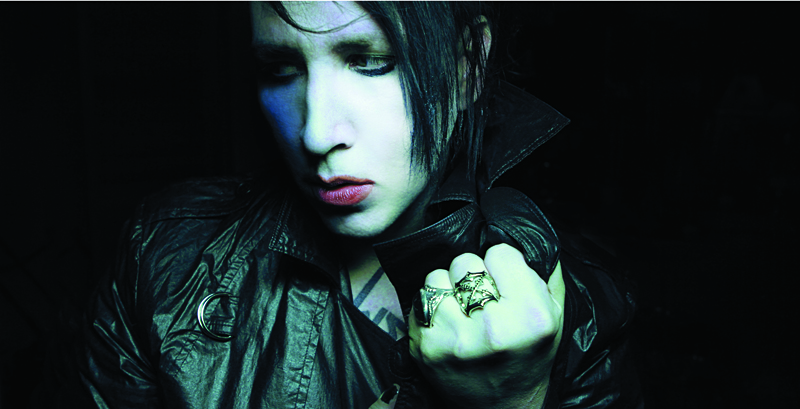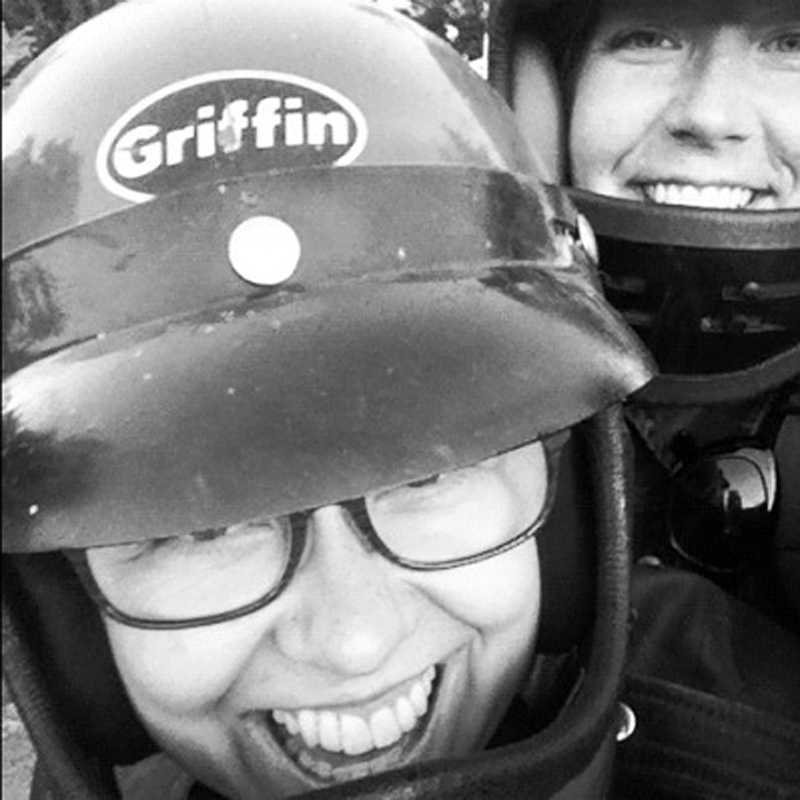Tuesday marked the much-anticipated release of Josh Tillman’s new project under the name Father John Misty, Fear Fun. The record is not only a reinvention for Tillman himself, but a re-conception of Laurel Canyon Americana experience. Already receiving a heap of praise, Fear Fun is a musical statement strong enough to answer why Tillman would walk away from his day job as the drummer in Fleet Foxes. Gearing up for his U.S. tour (which hits Neumos on Monday) in support of the record, Tillman took the time to discuss the concepts behind the album and the songwriting merits of psychedelics.MDL: I wanted to talk to you a little bit, since it’s timely, about Levon [Helm], because obviously your genres of music are similar and he’s a singing drummer. Do you have any feelings on his passing?JT: No, I don’t. I wouldn’t call this a concept record, but I know that you were working on a book when a lot of the themes of the record came about. I mean, it’s not Red Headed Stranger or anything, but it’s definitely conceptual, and there’s a lot of death and loss and recurrent themes. Can you talk a little bit about your head space when you writing that — where those ideas were coming from?Yeah, I mean, I think it’s absolutely a conceptual record in that the songs — I think the songs all kind of inform one another . . . I definitely wanted to kind of strain the, you know, the idea that an album has to have, like, explicit musical uniformity in order to be cohesive. I think that’s generally a pretty ridiculous kind of presumption among, like, people who think about music in that way. But what I wanted the conceptual strain on this album to be was the narrative voice. Genre distinction to me is just kind of . . . losing the plot a little bit, insofar as how to think about music. I don’t think it’s actually particularly significant. Like when you asked me about Levon Helm in terms of, like, we play the same genre or we’re in the same genre of music or something, I actually don’t really see it that way. Like I don’t feel any innate or obligatory, like, whatever, for another guy who plays the drums and sings. I mean, what — that to me is kind of a little bit of a red herring or something.But anyway, all this is to say that the idea is that if you have, like, this narrative voice throughout that’s kind of trans-musical that, to me, just for me personally, and based on what I’m — my skill set or whatever, not for the universe of music, or how my album relates to other albums in the atmosphere currently. That’s just what I wanted to attempt, you know?There’s a precedent that I wanted to set that was like you can do — like total liberty, you know? And as opposed to being beholden to, you know, like, well I’m a folk artist. Or I’m a — I mean it’s like, no, you’re not. You’re a fucking white male in your 30s who, like, lives in an urban center. Like you’re not — you’re not anything — you know, you are not things. You do not embody genres. You do not embody abstractions. Those are things that are put on you by . . .I was just going to say that. I think they’re helpful to a journalist trying to describe something, but probably limiting in the aspects of what you want to create.Yeah, I mean, saying like — I mean it’s really hilarious, like people are so addicted to that language. Like me putting out — when I put out “Hollywood Forever Cemetery” originally, and you kind of look at the, you know the way people are kind of trying to describe it or whatever and it’s like a folk rock number. It’s like, dude, what on earth? Like, if you listened to this song in a vacuum, does it have anything to do with fucking “Tom Dooley” you know, like folk music, like “Man of Constant Sorrows.” Does it evoke that? No. It’s an abstraction and so it’s a — it’s like — it’s a way to marginalize a piece of work in terms of the, you know, like kind of presumptions and I think that I definitely have a vested interest in — I think, and I actually think that I thought about myself that way for a long time. Where I thought of myself like, I — you know, because at 21, I decided I wanted to make like sort of these sort of records with this aesthetic and then before I knew it, I was like 27 or something and I had made all these, like, records and then I kind of woke up and was working around. It’ s just like, “Josh Tillman: You are not, like, a, like, folk troubadour. Like your experiences — your experiences and world view are way more broad than that. Why are you working within these very narrow parameters?”So yeah, that kind of — the sort of like noncommittal feel of, like, aesthetically, in the album, is evidence of like just have a new sort of liberty.MDL: A lot of people don’t own the usage of drugs in the creation of their music anymore. You seem really comfortable with that. And it definitely is a concept that comes through on the record. Can you talk a little bit about that experience and this record?Yeah. When you introduce the subject- like in the bio, discussing the mushroom thing. People — what the image that they get in their mind is really like doing mushrooms or eating a bunch of mushrooms and then sitting down with a guitar and like tripping my balls off, you know, quote unquote tripping my balls — whatever the fuck people call it — while I write a song, while I write this crazy song in these crazy states. And that’s really not — I mean that’s not how — that’s not what I’m talking about. Like, what I’m talking about is kind of a — the way in which — like, and the best that drugs can do for you — and you have to make this — I mean cocaine and mushrooms are not like in the same family of experience. You have to be nuanced in your thinking when you discuss those is problematic most of the time because people just do not think about drugs quote unquote in a very nuanced way. But mostly because they don’t have any experience with them and they’re told stupid things about them their whole life. But, you know, any — for a writer who is like — whose bread and butter is observation and consideration and considering alternate perspectives et cetera, the state – the state under which you’re in, in a mushroom, you know, when you’re utilizing mushrooms, is like, just like really heightened, like an ability to like consider oneself without vanity or without fear, you know, for me personally. And those are very useful – those are very useful frames of mind especially for a writer. So I think for me, some of my, you know, all I meant to imply with that was coinciding with this — with this kind of transitional period, it’s self-imposed transition, I was, like, I was — and, you know, just entering other frames of mind, utilizing mushrooms. And that some of that was very useful in terms of being a writer and in terms of liberating myself from my kind of some self-loathing and some fear and some major distortions that I had about myself and some of which were if I was a folk songwriter, something that I was kind of, you know, that that was all that it was and I was just kind of this J. Tillman person that I had cultivated and I just needed. I was much in need to get out of that mindset and mushrooms were very useful in kind of untangling some of that stuff.
More Stories From This Author
Capitol Hill Block Party Artist Panel Series 2019
The Capitol Hill Block Party Artist Panel Series 2019 is free (no festival wristband required), all-ages, and takes place from…
Golden Idols will release new EP
Seattle quartet returns with ‘Uneasy’
Travis Thompson, Wolf Parade headline Fisherman’s Village fest
The Everett Music Initiative festival, May 16-18 in Everett, will showcase more than 50 acts.







